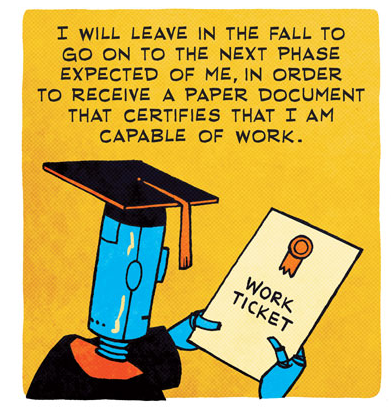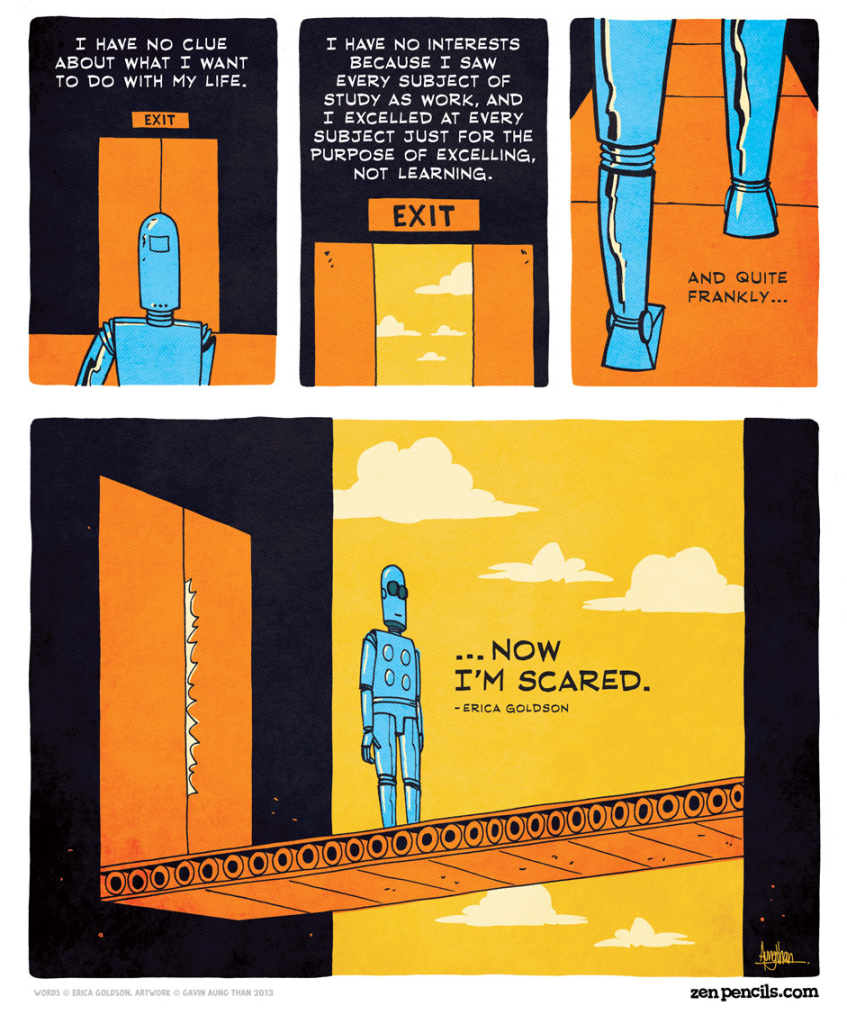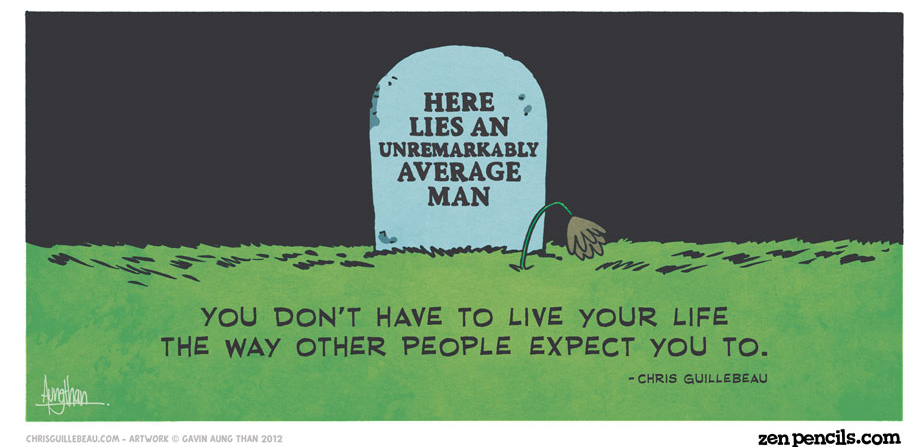I recently tweeted about an illustrated quote by the gentleman over at ZenPencils.com; it’s called “Erica Goldson – Graduation Speech.” Nothing, as of late, has inspired me more than reading this quote ( please check it out before you continue). My SLP graduate school graduation is this Saturday, July 27 and I won’t be attending since I moved to Alaska about 2 weeks ago. After reading this, I reflected on my own graduate school journey. One question came to mind:
Am I a good student or a good therapist?

I received my final grades today and was filled with an overwhelming sense of completion, accomplishment, and suddenly…sadness. Had I just been working for the good grades all this time? I completed all my assignments, extra credit, asked in what other ways I could help, and spent hours reading the chapters for each course. All for the sake of being a “good therapist,” right? Well, when the end of the semester rolls around, those same thoughts of “How well do I have to do on the final exam to make an A/B?” come around. When I reflected on my study habits, work ethic, and task completion, grades and satisfactory ratings ranked high in the scheme of themes. Where did this come from? When did I become a “slave of the system set up before [her]?”
I love everything about Speech-Language Pathology. I would consider myself passionate, excited, zealous, and other synonyms to “pumped-up-let’s-do-this”. However, more often than not, I got wrapped up in what my grade would be, or what little I had to accomplish to get my professor’s stamp of approval. There were some assignments that inspired me to work hard and dig a little deeper. But I also had lessons to prepare for clients, tests to study for, graduate assistantship hours to fill, and friends to see. Who has time to pursue personal interests like hiking, kayaking, climbing, or skydiving. Those aren’t on the syllabus.

Perhaps I’m being hard on myself. I was often both a good student AND a good therapist, as I’m sure many SLP graduate students are. But as I start a new journey called a Clinical Fellowship here in Alaska, I am determined to work within the expectations of my job – but not be limited by them either. It’s not always about what’s on an IEP or what the latest research says to do. Sometimes, it’s about being in the moment with a client, experiencing what inspires another person, and taking that moment to another level. Even if it’s as simple as fidgeting with a pencil or playing with playdough. I hope that if you read this post and the quote, you will feel just as convicted as I am.
Don’t go through SLP graduate school to be just a “good student” or just a “good therapist”. The expectations on the syllabus are not the measure of what you should learn. They are a foundation upon which to build your own style, approach, and technique so that you can inspire future clients to reach their full potential. It’s not always about what other’s expect of you to put on a test or on an IEP. There is more to this profession than that, and I plan to find out just how much I can accomplish for the sake of helping and serving others.



Nice reflection. I look forward to reading more about this same topic as you begin your CFY. Graduate school and CFY are totally different. I think you’ll do great with your CFY, but it will be a completely different experience. You will not get grades. And your hard work doesn’t necessarily mean your client will get better. It has to come from both sides of the table.
I remember being sad that some of my classmates didn’t make it into our grad school because their grades weren’t good enough, and they had clinical strengths as proven by our undergrad clinical experience. I made it because I’m really good at the format of learning (studying, tests, assignments, grades, etc) that college uses. This learning format is not all there is to learning, much less actually applying the knowledge clinically.
I wish there was a way to somehow quantify clinical skills and have that as a factor to get into grad school, but there isn’t a way I can think of (plus the university has its own entry requirements for graduate students). It seems like such a bum deal for those who didn’t make it because their grades weren’t as good. There’s definitely an intuitive art to what we do, and that can’t even be taught in school… and that clinical intuition might be the most important part once you’re out there practicing.
cool blog and nice job on it.
Being in my second year now, and still not being able to handle the balance between lesson plans and exams I’m am often frustrated because I don’t think graduate school is the real life of an SLP- it’s harder. Oh sure, we don’t sit in on every meeting, or work on reports or experience the full workload, but I sometimes feel programs should be structured in such a way that allow you to get classes over with first, then experience clinic 5 days a week- which may be closer to what is expected of us when we graduate and are in our CFY. I am aware that there are some programs structured this way, but mine isn’t and I’m wondering if it’s easier to get more acclimated with your setting/clients/patients/workload in that instance.
My program was one where we did on-campus clinic + classes first year and a half. Final year from Jan-July we only did full time internships. Even with all of that, I’m finding my CFY to be about my organization skills and ability to keep up with paperwork. Grad school was certainly hard, but when the stakes are raised when everything is on you, that is it’s own thing. Equally difficult for me, but the pay makes it seem easier 😉 lol
That extrinsic motivation makes all the difference. Although I still have it, I’m pushing this last semester! Keep me in your thoughts and prayers!
Of course!